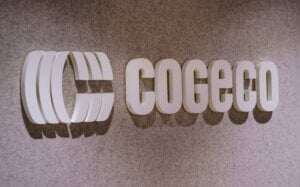- Create and analyze your monthly budget to see what you can afford to put aside in savings
- Set aside a certain amount each month or each paycheque
- Set up either a Tax-Free Savings Account (TFSA) or High-Interest Savings Account (HISA)
- Disconnect it from your debit card so you won’t spend it
- Pay yourself first
- Automate those payments
1. Set a monthly budget and find out what you can set aside each month
- Choose your budget tracker of choice. It could be Excel, an online tool or an app of choice
- Collect receipts, bills and pay stubs for the past six months. Some expenses will be the same amount each month (mortgage, rent, credit cards), while others might change depending on usage (hydro, entertainment, food, transport)
- Enter those numbers into the budget (if numbers differ monthly, use the average)
- Be as accurate as you can–look at the information you’ve added and adjust, add or subtract as needed
- Review your budget to see if there are any categories where you can spend less (some budget apps offer suggestions where you can cut back)
Some experts suggest saving 10% of your salary, but if that’s difficult, start by saving what you can, even if that’s $10 to $20 a month. TFSA savings accounts and high-interest savings accounts offer a higher interest rate than traditional savings accounts, so your money can compound at a higher rate over the same period of time.
If you have debt, you’ll want to pay that off as quickly as possible because the debt’s interest rate is higher than the earn rate on your emergency fund. That way, once you’ve paid off the higher-interest debt, you can redirect that money towards your emergency fund, which should feel pretty easy to do, because you’ve already developed the habit of saving money.
2. Choose the right savings account for an emergency fund
Where should you put your emergency fund? There are two ideal options: inside a TFSA, or a regular high-interest savings account.
Tax-Free Savings Account
A TFSA is a registered investment or savings account that allows you to invest in a number of different instruments, including ETFs, stocks, bonds and cash, for tax-free gains. The amount of money you can deposit is limited to $6,000 per year, to a lifetime maximum total contribution amount of $69,500 as of 2020. Any amount you don’t use in a given year remains available to you going forward, so it isn’t a “use it this year or lose it” situation.
TFSAs are very flexible and are the best option for an emergency fund because you can use them for any short- and long-term savings goals, and you can make tax-free withdrawals. (RRSPs, on the other hand, require you to claim any withdrawals as income.) TFSA savings accounts can also offer a higher interest rate than the average savings account, currently around 2.0%.
Compare the best TFSA rates in Canada
High-interest savings account
High-interest savings accounts are just what you’d expect. They pay higher interest than standard savings accounts, which makes them a good option to deposit your emergency fund. Most of them offer an average of 2.0%, up to a certain balance amount. And most banks and credit unions offer their own version of a HISA.












Just trying to make sense of the numbers… The article states “According to the Government of Canada, 64% of Canadians have an emergency fund to cover three months’ worth of expenses, so most of us are on the right track,” yet we often hear that “Nearly Half of Canadians (48%) Are $200 or Less Away from Financial Insolvency” (Ipsos.com). Assuming there is also a third group of people sandwiched in between these two groups, those who have some emergency funds but not three months worth, I’m trying to figure out why the total is greater than 100%. Perhaps some are counting their available credit as their emergency fund?
What about return (cost of opportunity) you are missing, if you are keeping all life money in cash equivalents (emergency fund)?
For my household, I keep a combination of extra money in chequing, a HISA and TFSA (bond ETF). Outside of a job loss, I should never have to go to my TFSA.
I struggled with the concept of opportunity cost, but I read that you should never have money in stocks when your horizon is less than 5 years. The statistics back up this rule so I’m happy if I can keep close to inflation.
This depends on a lot of factors though. For example, our must-have expenses are about 50% of our income, 10% is spending on entertainment and we save 30% for retirement and a portion goes to “goals” like vacations, new car, home improvements etc. In the case of a job loss, employment insurance will cover about 50% of our income for 6 months and my mortgage is insured so it drops to 50% when I or my wife loses employment. This way, if either me or my wife loses our jobs, insurance covers all of our expenses for 6 months. The main thing is this – if you can live below your salary, go for it. I work with people who earn less than I do, but they drive cars that cost 5 times as much as mine. McDonalds everyday for breakfast, smoka a pack a day etc. We still enjoy our lives even though we live below our means. The main thing you need to learn – budget your spending, that way you still get to enjoy life and go out over weekends, just keep it in moderation. Most people want to keep up with the Jones’s. My 2013 Ford Focus will get me just as far as your 2021 Mercedes or BMW, because I look after it and keep it maintained. It’s not that difficult, people just don’t want to hear the cold hard truth because it hurts their feelings.